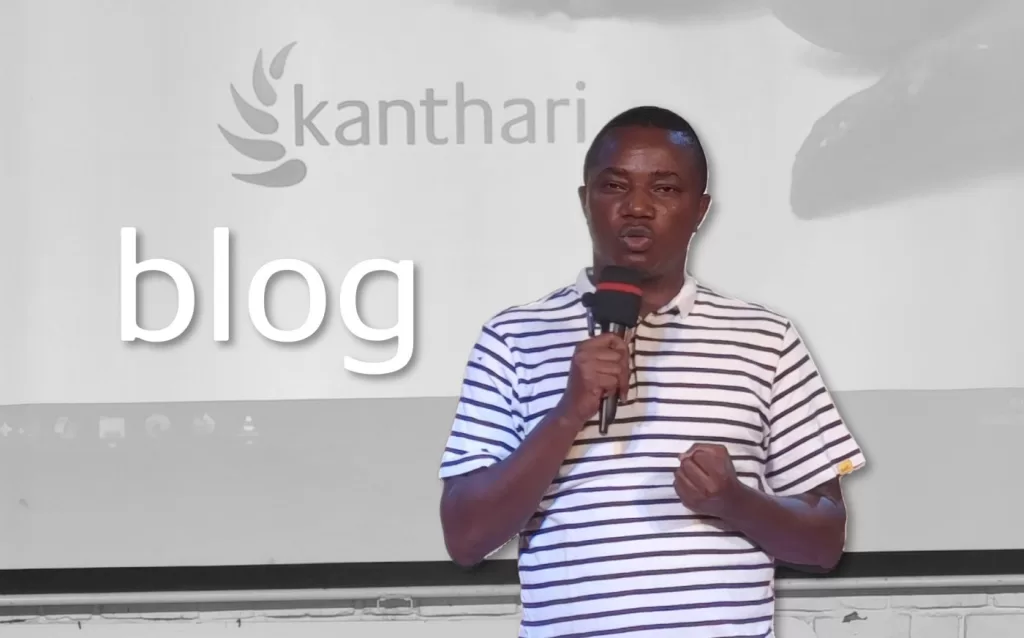When Elie lost his father to a community land conflict in the Democratic Republic of Congo, his world changed forever. Forced to flee for safety, he spent his early life in displacement, witnessing the toll of poverty and violence. Today, he’s channeling that experience into a powerful vision: to empower youth to resolve conflicts peacefully, rebuild their communities, and drive sustainable development.
GRACE’S TESTIMONY A BENEFICIARY AND VOICE FROM GOMA, DEMOCRATIC REPUBLIC OF CONGO
The Great Lakes region has been experiencing a series of conflicts for more than three decades. This has significantly weakened the social fabric, and children, women, and the elderly are the most affected.
I invite you to take just one minute to listen to this testimony from this woman, who is one of the beneficiaries of our project on the peaceful resolution of conflicts in the Kivu region of the DRC.
This message is addressed to you so that you can contribute to the restoration of peace and also promote sustainable development in the region, as well as restore hope to this entity.
“I know everything about war, but I know nothing about peace. This is a sentence I shouldn’t be saying in 2025. But it’s the reality of my life, and that of thousands of other women in eastern Congo.
My name is Grace. I was born in 1990 in Ziralo, a village in the Kivu region of Kalehe Territory that has been scarred for decades by armed conflict. I grew up in a climate of fear, instability, and violence. The war has never left me. I lived my childhood surrounded by the sound of bullets, screams, and constant flight. I was able to obtain a state diploma, but the conflict quickly interrupted my education. My parents, like so many others, had to abandon our fields; our only source of income. Since then, it’s been survival, day after day.
To this day, fear is still our daily life. Three months ago, the M23 rebels took up positions in Goma. We fled once again. Traumatized. The children cried incomprehensibly; the adults stared helplessly into space. In this endless war, we have lost brothers, husbands, children. Some are dead, others have disappeared, like my little brother, abducted at 14 to become a fighter.
But it’s what happened to my sister that haunts me the most. Armed men burst into our home. They raped her. Then, in an act of unimaginable cruelty, they inserted a stick into her body. She survived, but she no longer speaks. She’s no longer truly here. Since that day, I’ve understood how women are the primary targets of this war.”
What Conflict Does to Women
In our community, women are exposed to extreme sexual violence, forced displacement, loss of economic autonomy, and social exclusion. Every armed attack is also an attack on our bodies, our dignity, and our future.
We live in a torn social fabric: ethnic conflicts prevent collaboration between certain communities, land is disputed, and families are divided. Women who try to make their voices heard are often silenced by fear, shame, and exhaustion.
And yet, here we are, standing, ready to rebuild. Why your support is vital.
It’s not enough to survive. We need a path to recovery. Today, I speak not only on my own behalf, but on behalf of all the women, mothers, daughters, adolescents, displaced people, widows, orphans… who are waiting for a chance to live again.

Here’s what we can build together:
1. Spaces for healing and discussion:
To welcome women who are victims of violence, help them rebuild their psychological lives, regain their dignity, and regain a sense of serenity.
2. School reintegration and literacy programs:
Many of us were unable to finish school. Education is our key to breaking out of the cycle of poverty and violence.
3. Livelihood support:
Training, agricultural, and craft cooperatives, so that women regain economic autonomy and a voice in their communities.
4. Support for community mediation and social cohesion
Work with communities to break down ethnic barriers, strengthen local peace, and prevent new conflicts.
5. Protection of minors:
Develop community mechanisms to prevent child recruitment and reintegrate those returning from the bush. I have never known peace. But I want to sow it for others. And I’m not alone. Women like me, in every hill, every village, every neighborhood of Goma and eastern Congo, are waiting for opportunities to turn the page.
In short, with you, we can use resilience as a lever for transformation.
Thank you for listening to us. Thank you for believing that, even after so much suffering, it is possible to make life flourish again where all else seemed to have failed.
Elie Mastaki
Goma, DRC



